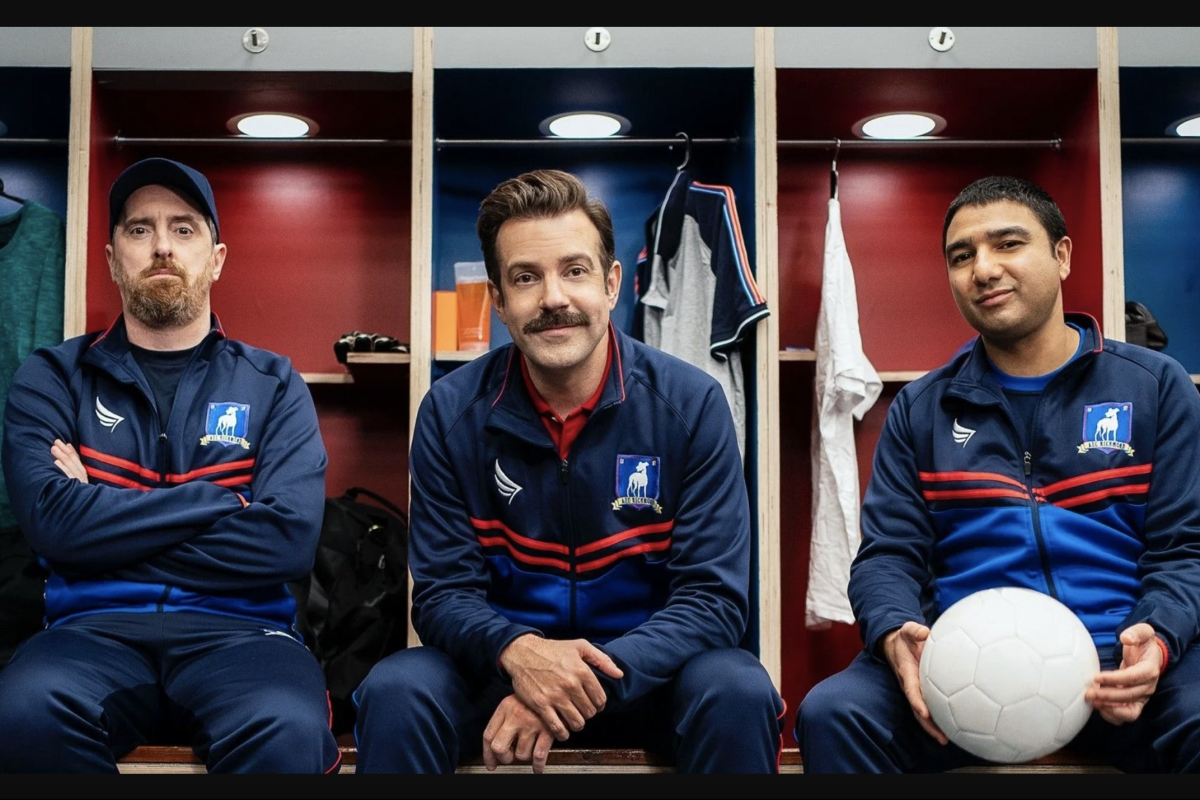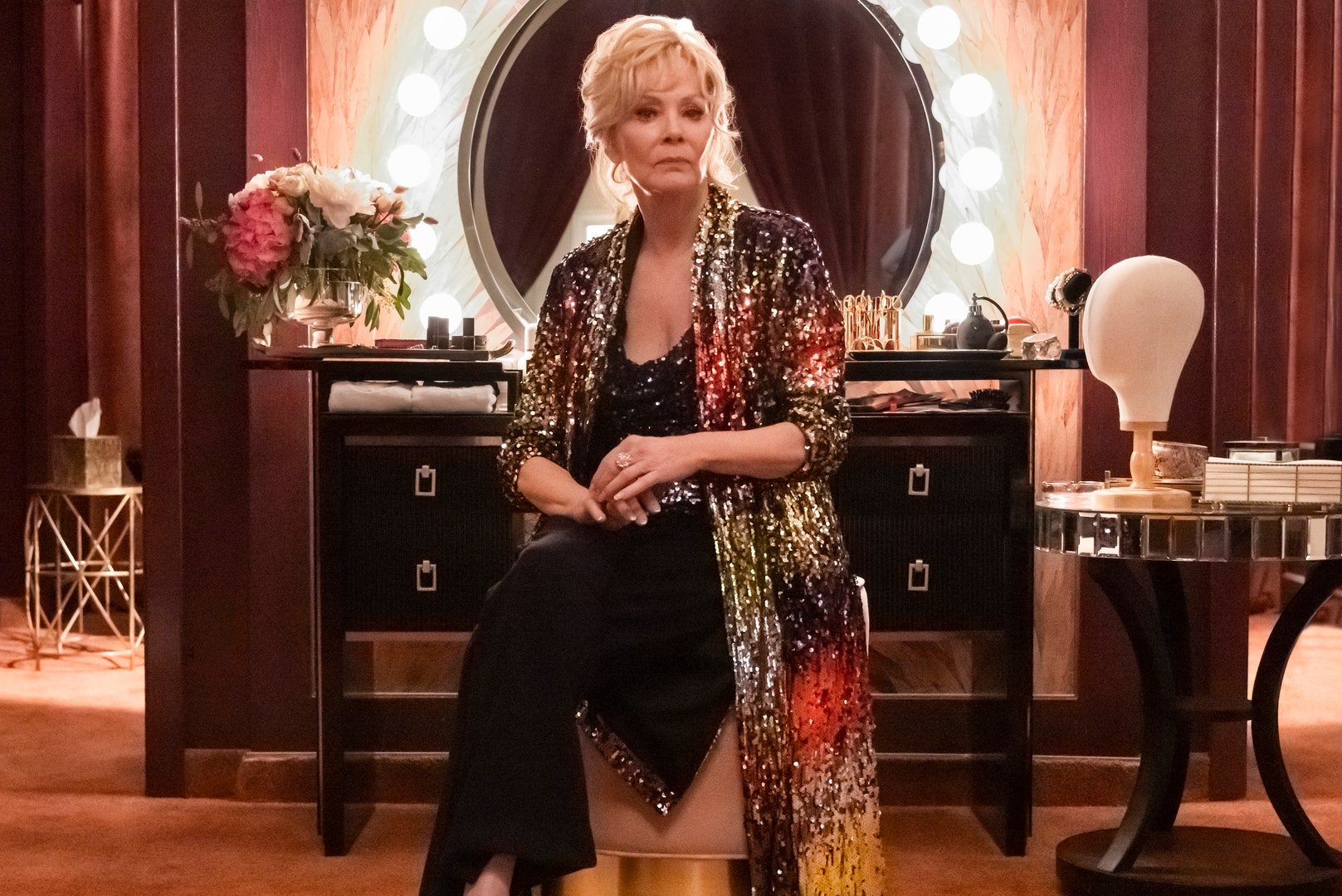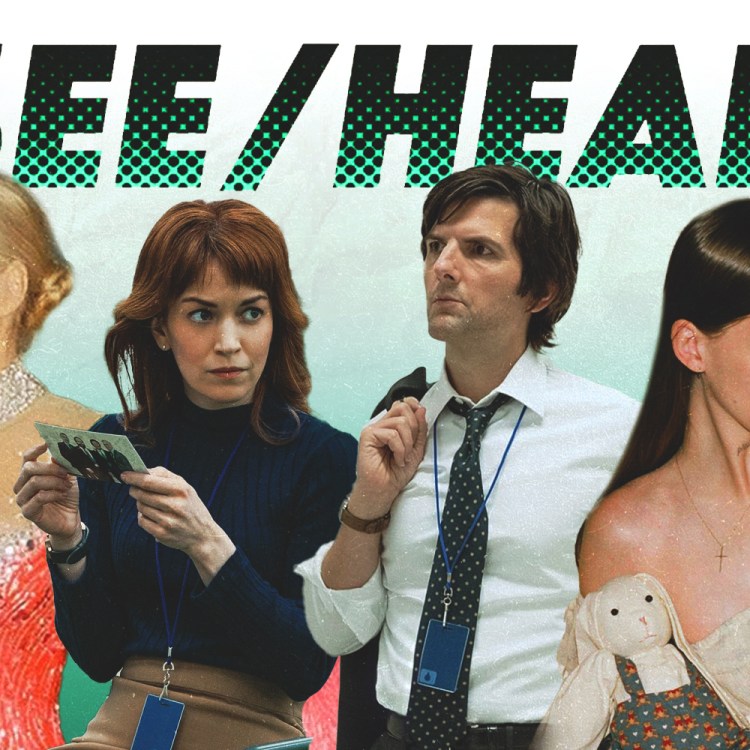So often when we see sports — professional or otherwise — depicted in pop culture, they’re reflecting the worst, most toxic elements of masculinity. Coaches are gruff and abusive, convinced they can motivate their players to win with intimidation and physical punishment. Locker rooms are rife with homophobia, misogyny and cruel pranks. Victory is a must; as Dale Earnhardt once said, “Second place is just first loser.”
Ted Lasso doesn’t just deviate from this formula — it actively fights against it. As the titular character, an American football coach who finds himself helming the AFC Richmond soccer team in England despite not knowing much about the sport, Jason Sudeikis looks the part. He’s got the mustache and the Mike Ditka glasses, and at one point a woman he hooks up with refers to him as the Marlboro Man. But Ted also happens to be the nicest man alive — just a total ray of light who’s constantly cracking jokes and showing up with handmade baked goods — and while it’s a fish-out-of-water story on the surface, the show is at its core a lesson in kindness. It reminds us that we’re all better versions of ourselves (on and off the field) when we’re treated with care and understanding.
That message resonated in a big way when the show’s first season debuted on Apple TV+ last year. (Season 2 premieres on July 23.) Released during the pandemic at a time when we were all in dire need of the serotonin boosts and warm fuzzy feelings it offered, it became a runaway hit. Last month, the series was honored with a Peabody Award for “offering the perfect counter to the enduring prevalence of toxic masculinity, both on-screen and off, in a moment when the nation truly needs inspiring models of kindness.” Just last week, it earned a whopping 20 Emmy nominations, making history as the most-nominated freshman comedy series ever. It’s hard not to think that most of that success stems from the fact that its lead character is a total breath of fresh air.
Season 2 picks up where the first left off in terms of its unrelenting optimism and the way it seeks to dismantle tired macho stereotypes. Ted frequently references his love of rom-coms, even using it as a metaphor while giving his team an important pep talk. The members of AFC Richmond are constantly encouraging one another to open up about their feelings, and when things get too heavy, they go out of their way to remind each other that soccer’s just a game. After a particularly rough loss, one of the players gives a post-game interview where he says all that matters is that they tried their best. After one especially upsetting incident in the locker room (which we won’t spoil here), retired star-turned-assistant coach Roy Kent (Brett Goldstein) recognizes that one of his players could use a hug, and he continues to hold him while the player openly weeps on his shoulder. (We’re a long way from “there’s no crying in baseball.”) Ted Lasso is not some magical fairyland completely devoid of assholes, but the show goes out of its way to show us why the assholes are the way they are — more often than not because they had a shitty dad whose own warped idea of masculinity was passed on to them.
A character like Ted Lasso could easily become cloying and cartoonish, but both seasons of the show avoid that by fleshing him out and giving us peeks at the darkness lurking underneath his cheery exterior. Ted’s not a saint; even he slips up occasionally, like in Season 1 when he needlessly snapped at his assistant coach Nathan, seething with anger and grief after being served divorce papers (he quickly corrects course, offering an earnest, public apology the next day and a promise that he’ll do better). Loneliness and heartbreak sometimes get the best of him, and he continues to suffer from occasional panic attacks. He’s got a need to be liked that borders on pathological. Season 2 peels back some more layers, revealing that while he’s all for his players tapping into their emotions, Ted himself has an aversion to therapy. His scenes with Dr. Sharon Fieldstone, the newly hired therapist (played by Sarah Niles of Catastrophe) that the team brings aboard to help one player cope with a case of the yips, are some of the season’s strongest, and they give us a sense that his smiling, aw-shucks vibe might actually be a defense mechanism to help cope with some serious trauma.
That, ultimately, is what makes Ted Lasso such an excellent show. Ted isn’t an unrealistically sunny, golden retriever of a man who never has a single negative emotion. He’s flawed, just like you and me, but he’s constantly trying to do better. His imperfection makes him relatable, and while it keeps the show from becoming too saccharine, it also makes it aspirational. No one can be kind and friendly 100 percent of the time, but we can all be Ted — or at least we can try our best to be while understanding that we’ll occasionally fall short. That’s all you can ever really ask of someone, in sports and life in general, and Ted Lasso asks it of us in the most heartwarming way possible.
This article was featured in the InsideHook newsletter. Sign up now.























